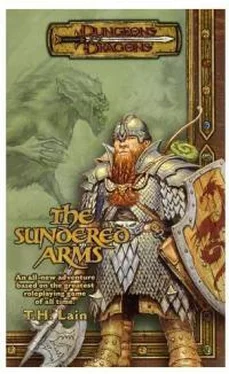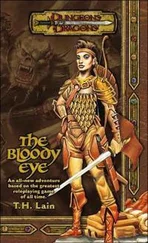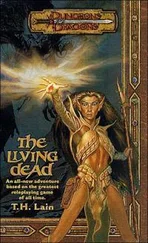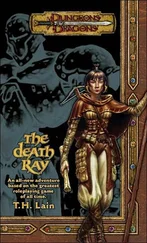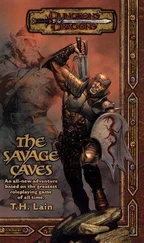T Lain - The Sundered Arms
Здесь есть возможность читать онлайн «T Lain - The Sundered Arms» весь текст электронной книги совершенно бесплатно (целиком полную версию без сокращений). В некоторых случаях можно слушать аудио, скачать через торрент в формате fb2 и присутствует краткое содержание. Год выпуска: 2003, Жанр: Фэнтези, на английском языке. Описание произведения, (предисловие) а так же отзывы посетителей доступны на портале библиотеки ЛибКат.
- Название:The Sundered Arms
- Автор:
- Жанр:
- Год:2003
- ISBN:нет данных
- Рейтинг книги:4 / 5. Голосов: 1
-
Избранное:Добавить в избранное
- Отзывы:
-
Ваша оценка:
- 80
- 1
- 2
- 3
- 4
- 5
The Sundered Arms: краткое содержание, описание и аннотация
Предлагаем к чтению аннотацию, описание, краткое содержание или предисловие (зависит от того, что написал сам автор книги «The Sundered Arms»). Если вы не нашли необходимую информацию о книге — напишите в комментариях, мы постараемся отыскать её.
The Sundered Arms — читать онлайн бесплатно полную книгу (весь текст) целиком
Ниже представлен текст книги, разбитый по страницам. Система сохранения места последней прочитанной страницы, позволяет с удобством читать онлайн бесплатно книгу «The Sundered Arms», без необходимости каждый раз заново искать на чём Вы остановились. Поставьте закладку, и сможете в любой момент перейти на страницу, на которой закончили чтение.
Интервал:
Закладка:
Tordek could barely make out the spots she indicated. Judging from the distance, he guessed that each one must be around twenty feet high. He made a low, almost inaudible thinking sound deep in his chest. “Perhaps,” he said.
Vadania watched him, expectant of more information. When he did not offer any, she looked back at the peak and said, “I see smoke against the stars. There is a camp near the summit.”
Tordek took her word for it. By dint of his dwarven blood, he could see through subterranean blackness without so much as the light of a spark. Even so, no dwarf could hope to see so far and clearly as an elf on a moonlit night.
“Uh oh,” said Vadania.
“What?”
“Something is moving among the trees up there. Something big.”
“Giants?”
She nodded. “Probably. There were none in the area a month ago. I would have seen their tracks.”
“He is wasting no time,” said Tordek. “Already he summons an army for his champions to lead.”
“You think it is Hargrimm?”
“Who else?” said Tordek.
“Why haven’t you told the others about him?”
Tordek ignored the question. “Where is the secret entrance you found?”
“They deserve to know what manner of foe we face, Tordek. Your brother’s was not the only soul the barghest devoured.”
“Where is the entrance?” insisted the dwarf. He jutted his jaw obstinately, but there was more entreaty than warning in his tone.
The elf pointed to the base of the nearest cliff. Tordek saw the glimmer of water coursing below the promontory. Even at this distance, he saw that where it passed the cliffs its surface turned dark and unreflective.
“Can we reach it without alerting the troops on the summit?”
Vadania raised one eyebrow at the word “troops.” She said, “This is no war, Tordek. We are no army.”
“Can we reach it undetected?”
“Yes,” sighed the elf, “if we are careful of their scouts. I can take wing tonight and try for a better look at the camp on top.”
Tordek considered the offer but shook his head. “I think of those spider-eaters and do not like the thought of their catching you alone. Besides, we won’t have to go anywhere near the camp. At first light we go down past the eyes and fingers of the fiend and strike at his heart, down in Andaron’s Delve.”
Four hours after dawn, they stood on the narrow shore at the base of the southwestern cliffs of Jorgund Peak. Thirty paces to either side, steaming trails of iron slag and some other hellish substances oozed out of narrow sluices and into the river. Already befouled by the grates on the other side of the promontory, the stream burbled and blushed as it received the noxious runoff. As much as the pollutants offended the two-legged companions, whose legs it had stained dark red as they waded across the stream, their stench drove the usually silent Gulo to whining like a kit.
“I’ve got nothing,” said Lidda, rocking back on her heels as she squatted before the cliff wall.
“Keep looking,” said Tordek. He stood on her right and peered along a hairline crack, blowing dust out here and there. “How about you, bard?”
At the other side of the door, Devis traced a faint line of dwarven characters and compared them with what he had written on a sheet of parchment. “Still the same,” Devis said.
For the past two hours, Tordek and Lidda had taken turns examining the nearly invisible outline of the secret door for some sign of a catch and the surrounding wall and ground for any indication of a counterweight. While they sought a mechanical solution, Devis considered the weathered runes, which he translated literally and inscribed on parchment. Tordek did not fully trust the bard’s ability with the dwarven tongue, but for a dabbler who was not fluent in the language, the half-elf had done a creditable job. The dialect was peculiar even to Tordek, and a few characters had been effaced by centuries of erosion. The bard summed it in Common: “In siege or mutiny, friends of Andaron, come silently through the secret under the mountain.”
“I give up!” sighed Lidda. “Either this is a false door, or else the dwarves never finished cutting it.”
“Nonsense,” said Tordek. “Who would write a welcome on a door that was not finished? It would be an affront to the delve and to the gods that protect it.”
“You said it yourself,” said Devis. He blew one last time to assure himself the ink was dry, then rolled the parchment and put it in the bag with his other scrolls. “It sounds solid when you rap it. My spell detected no trace of magic on the wall. There must be some dwarven trick to it.”
Tordek grumbled a nonspecific complaint and looked up at the sky. The sun was rising toward its zenith, and the shadow that helped shield them from view was rapidly shrinking. High above, brilliant white clouds rode high in a bright blue sky. A great, lozenge-shaped formation slowly glided past one of the flat spots pointed out by Vadania the night before, giving the illusion of steam rising from a white pool set into the cliff. The spots were smooth except for the mark of chisels and stone saws, which Tordek could identify even from the base of the cliff, thirty feet below. Each was about eight feet wide and ten or twelve feet high. They had distinct outlines that hinted at giant faces.
“What were they?” asked Vadania.
“The gods,” replied Tordek and Devis in unison. Tordek gave the half-elf a sour look, but Devis grinned and winked back at him.
“You want to tell it?” he asked. His tone of voice made it plain that he hoped Tordek did not.
“Go ahead,” said Tordek sourly.
“Many dwarven strongholds set the images of their gods looking out at the surrounding lands as a way of calling on their protection. Usually it’s just one god, or perhaps two. Moradin is always the first one. That’s probably him, there, right above us. On the other side is Berronar Truesilver, his wife and the Mother of Safety. They usually appear beside each other.”
“Who are the others?” asked Lidda. “I know Clangeddin Silverbeard, Father of Battle.”
“I don’t know,” said Devis. “It’s hard to tell from the shapes that are left.”
“He’s on the other side,” said Tordek. “Protecting Berronar and Sharindlar the Shining Dancer. Probably keeping an eye on Abbathor, too.” Tordek licked his thumb and rubbed it against two fingers as if feeling a coin. “Trove Lord, he’s called. Wyrm of Avarice. He left his shadow on this delve, to be sure.”
“Who’s on this side?” prompted Vadania.
Tordek looked up and considered. “Dugmaren Brightmantle, Dumathoin the Keeper of Secrets Under the Mountain, and Vergadain the Merchant King, probably.”
“Are you sure?” said Devis. “What about Haela Brightaxe or Gorm Gulthyn? There are others, too. Deep Duerra and Ladaguer, for instance.”
“Haela is a demigod, lauded as a hero in some delves, as a goddess in others. Gorm you will never find on the surface, for he watches for those who devour from beneath the hearth.” Tordek fixed his eye on the bard. “The others are not to be spoken of.”
Devis looked disappointed, but he nodded. Despite the warning, there was no keeping his tongue still for long, and Tordek sighed as Devis put his hands on his hips and leaned back to look at the places where the gods had been. “Dumathoin you said. Which one is he?”
“Can’t be sure,” said Tordek. He pointed at one of the smooth planes. They could see the truncated edges of ears, jaws, and rippling hair. “Maybe that one, with the thin neck.”
“I’ve heard another name for him,” said Devis. “ ‘The Silent Keeper.’”
“That’s because he never speaks,” said Tordek. “Dumathoin is mute.”
Читать дальшеИнтервал:
Закладка:
Похожие книги на «The Sundered Arms»
Представляем Вашему вниманию похожие книги на «The Sundered Arms» списком для выбора. Мы отобрали схожую по названию и смыслу литературу в надежде предоставить читателям больше вариантов отыскать новые, интересные, ещё непрочитанные произведения.
Обсуждение, отзывы о книге «The Sundered Arms» и просто собственные мнения читателей. Оставьте ваши комментарии, напишите, что Вы думаете о произведении, его смысле или главных героях. Укажите что конкретно понравилось, а что нет, и почему Вы так считаете.
